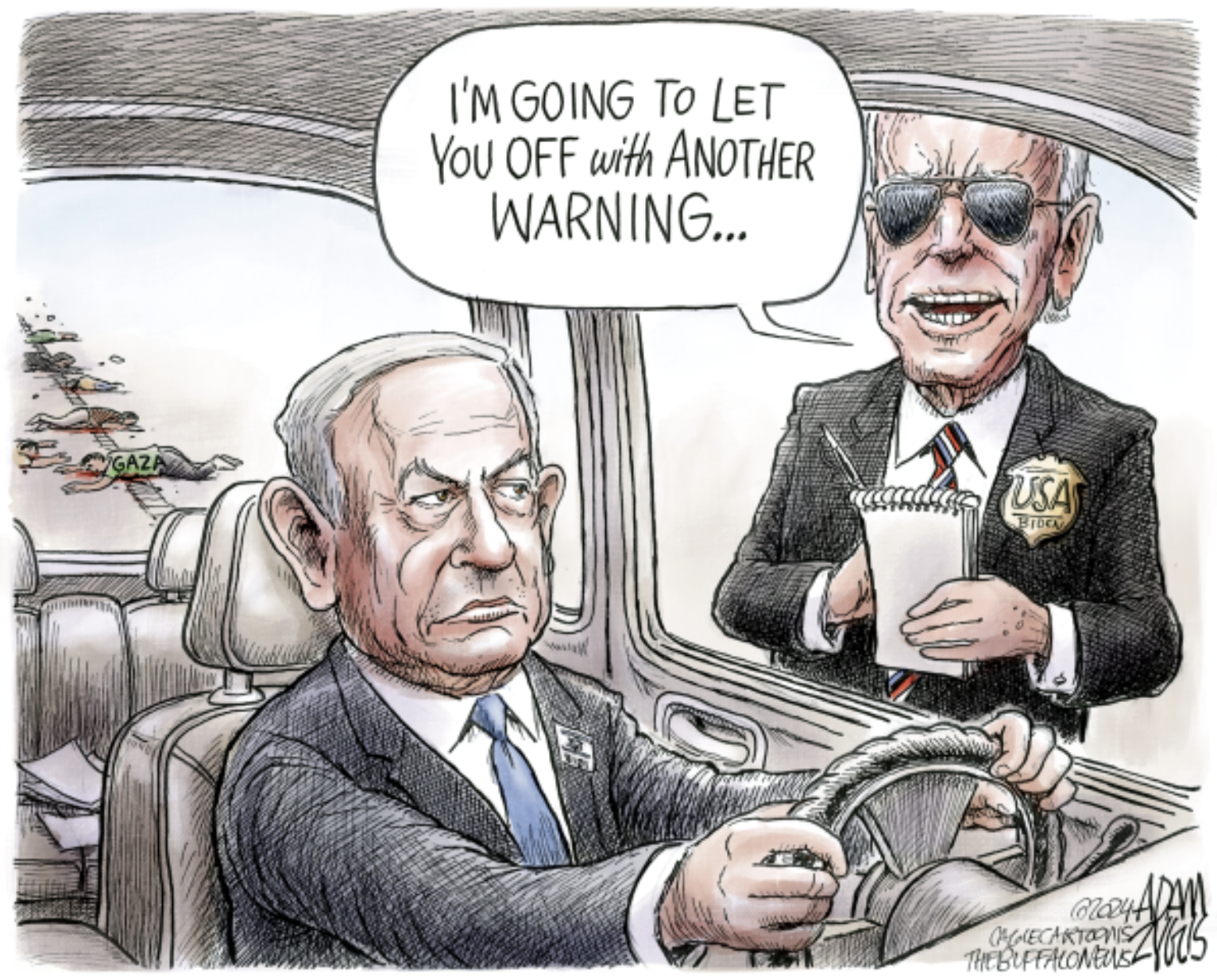Beyond Gaza
‘Somehow This Madness Must Cease’

“Somehow this madness must cease. We must stop now. … I speak for those whose land is being laid waste, whose homes are being destroyed, whose culture is being subverted.”
These passionate words ably address the situation in Gaza, now six months into the Israeli-Hamas conflict. The words, however, were spoken over 57 years ago. They were part of the speech titled, “Beyond Vietnam: A Time to Break Silence,” delivered by Dr. Martin Luther King Jr. on April 4, 1967, at Riverside Church in New York City.
“Beyond Vietnam” was a turning point for Dr. King’s social justice and nonviolent activism. While he had been criticizing the Vietnam War for two years, at Riverside Church he unequivocally condemned the conflict, citing numerous calamities brought upon the Vietnamese people by the U.S. military, and called for an immediate ceasefire.
In his speech Dr. King explicitly connected the Vietnam War to deep-seated inequality and unpardonable violence, stating:
“We as a nation must undergo a radical revolution of values. We must rapidly begin the shift from a thing-oriented society to a person-oriented society. When machines and computers, profit motives and property rights, are considered more important than people, the giant triplets of racism, extreme materialism, and militarism are incapable of being conquered.”
This shift to focus on a broader and more fundamental American immorality and injustice personally cost Dr. King. Leading newspapers, which largely supported the war, immediately criticized the speech. The NAACP publicly complained that it undermined support for civil rights. Even some of Dr. King’s closest allies expressed dismay over the speech.
Yet, has there ever been a more prophetic call for peace and justice in American history than the words uttered by Dr. King in “Beyond Vietnam?”
And has there ever been a more substantiated indictment of American foreign policy — and one so relevant and compelling for our time?
Three times since the beginning of the Israeli-Hamas conflict, the U.S. singularly vetoed a resolution by the Security Council of the United Nations that called for an immediate ceasefire in Gaza. Recently, the Security Council was successful in passing the resolution for a cease-fireonly when the U.S. abstained from voting on the matter.
And here are some current consequences of the ongoing military violence imposed on Gaza, as reported by the UN and its agencies: over 32,000 innocent Palestinians — including over 12,300 children — have been killed, with thousands more missing; 350,000 children face imminent starvation; 17,000 children have been separated from their parents or families; 1.7 million Palestinians, or 75 percent of the Gaza population, have been displaced.
All this was brought upon the Palestinians with the U.S. providing Israel with munitions and weaponry for the assault on Gaza.
Have we not seen such calamity brought upon other countries that involved recent U.S. military intervention, such as Iraq and Afghanistan? And who has gained or benefitted by this?
The answer here can again be found in words spoken by Dr. King, 10 days after his “Beyond Vietnam” speech, in an address he made across the country at Stanford University titled “The Other America.”
Referring again to the Vietnam War, Dr. King stated: “It has strengthened the forces of reaction in our country and brought us to the forefront of the military-industrial complex that even President Eisenhower warned us against at one time.”
Numerous corporations in the U.S.have benefitted from the military aid given to Israel in bearing military violence on the people and infrastructure of Gaza.
From humanitarian and justice perspectives, all this begs the question: Where should American complicity in such calamities experienced by Gaza lead?
It should lead to the U.S. being held accountable to international humanitarian law. Our nation and its leaders have aided and abetted in the violation of this law, and bear responsibility for doing so.
Most international law protecting innocent people in military conflict derives from the four Geneva Conventions of 1949 and related agreements in the Additional Protocols of 1977 and 2005. Several articles in these agreements call for the protection of innocent civilians; for relief shipments, medical supplies, and humanitarian organizations to be allowed passage; the outlawing of “indiscriminate attacks on civilian populations and destruction of food, water and other materials needed for survival”; and “use of weapons that cause superfluous injury or unnecessary suffering.”
Aiding and abetting in war crimes, under international law, requires that a party act in a way having substantial effect on the commission of the crimes and knows it is assisting in that commission.
Millions around the world have observed, in real time and through numerous media, the killing of thousands of innocent people and vast demolition of infrastructure in Gaza by the Israeli Defense Forces, knowingly armed by the U.S.
It may be impossible to fully describe the horror of the immoral, illegal,and unjustified attack by Hamas on Israel on October 7, and the anguish it has brought upon the Israelis and many Jewish people living outside the country. Israeli hostages remain imprisoned, threatened, and likely mistreated by Hamas.
Nonetheless, the gross illegality of one party cannot justify the gross illegality of another nation.
If the credibility of international law is to be maintained, the U.S. must immediately halt its military arming of Israel. Further, the U.S. should suspend its alliance with Israel until it halts all its military operations in Gaza. Both Israel and the U.S. should commit to reparations for the residents of Gaza, including the rebuilding of its infrastructure and the timely and just establishment of a two-state solution in Palestine.
Going forward, the U.S. and Israel are called to nothing short of a radical revolution of values.
